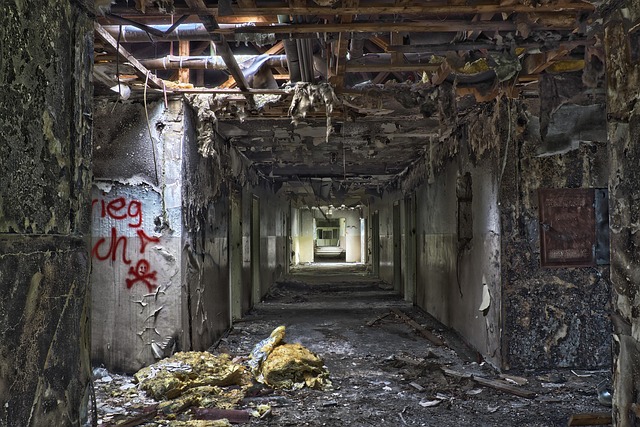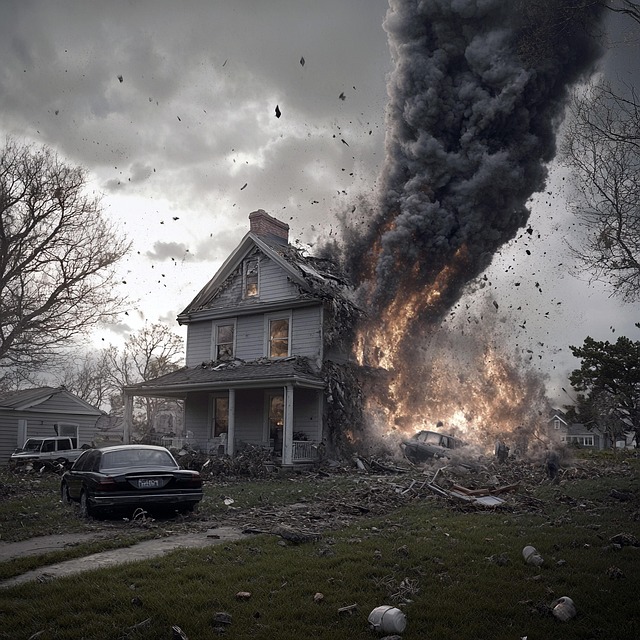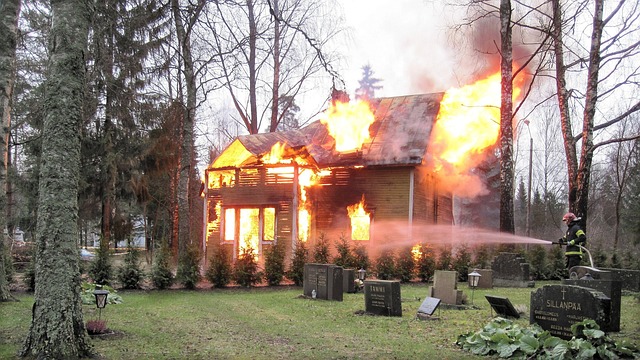Selling a home "as is" due to fire damage in Houston requires adhering to Texas' strict property disclosure laws. The Texas Property Disclosure Form must be completed honestly, detailing all known defects, including fire damage and remediation efforts, to avoid legal issues. Sellers aren't legally bound to disclose pre-existing issues unless aware of them recently, but buyers should conduct thorough inspections. Adhering to these requirements ensures transparency, protects both parties, and can offer potential cost savings for buyers planning renovations or accommodating repairs. Key points include disclosing structural integrity, air quality, health hazards, and material defects related to fire damage.
Navigating Texas property disclosure laws when selling a home, especially in bustling Houston, is crucial. This comprehensive guide explores what constitutes an ‘As Is’ sale, focusing on fire damage and legal requirements. We delve into disclosing material defects to buyers and the exclusions and immunity sellers enjoy. Additionally, we clarify rights and responsibilities when selling a damaged house, with specific attention to cases involving fire harm. Whether planning a quick ‘sell my house as is fire damage Houston’ or simply understanding your obligations, this article offers invaluable insights.
- Understanding Texas Property Disclosure Laws
- What is a As Is Sale in Houston?
- Fire Damage and Legal Requirements
- Disclosing Material Defects to Buyers
- Exclusions and Immunity for Sellers
- Selling Your Damaged House: Rights and Responsibilities
Understanding Texas Property Disclosure Laws

In Texas, selling a house “as is” with fire damage requires adhering to specific property disclosure laws. These regulations are in place to ensure transparency between sellers and buyers, especially when dealing with potential issues like structural damage or hidden hazards. When a home has sustained fire damage, it’s crucial to disclose this information accurately to prospective purchasers. The Texas Property Disclosure Form is a legal document that outlines the condition of the property, including any known defects or repairs needed. Sellers must complete this form honestly and thoroughly, noting all relevant details about the fire damage and any subsequent remediation efforts.
For homeowners considering “selling my house as is” due to fire damage in Houston, understanding these laws is paramount. Failure to disclose could lead to legal repercussions and financial consequences post-sale. It’s recommended to consult with real estate professionals or attorneys familiar with Texas property disclosure laws to ensure compliance and protect both the seller and buyer during the transaction process.
What is a As Is Sale in Houston?

When considering a “sell my house as is” option in Houston, it’s crucial to understand what this means in terms of property disclosure laws. A sale as-is refers to selling a property in its current condition, with no repairs or improvements made by the seller. This type of transaction is common for properties that may have issues such as fire damage, which can significantly impact the value and appeal of a home.
In Houston, when a seller opts for an as-is sale, they are not required to disclose pre-existing problems, including fire damage, as long as they haven’t been made aware of them within a reasonable period before the sale. However, buyers should still conduct thorough inspections to assess the property’s condition. For properties with fire damage, this may involve assessing structural integrity, air quality, and potential health hazards. An as-is sale can be attractive for buyers who plan to renovate or are flexible with repairs, allowing them to purchase a home at a potentially lower price point.
Fire Damage and Legal Requirements

When considering selling your home with fire damage in Houston, understanding legal requirements is crucial. In Texas, sellers are legally obligated to disclose any known material defects, including those resulting from fires, that could affect a buyer’s decision to purchase the property. This includes providing detailed information about the extent of the damage and any repairs or remediation efforts undertaken.
Fire damage can leave remnants that may not be immediately visible, such as charred insulation or hidden structural issues. Sellers must conduct thorough inspections and obtain professional assessments to identify and disclose these potential concerns. Failure to do so could result in legal repercussions, especially if a buyer discovers undisclosed fire-related issues after purchasing the property. For those looking to sell their house as is due to fire damage, transparency and adherence to disclosure laws are essential to mitigate future risks.
Disclosing Material Defects to Buyers

When selling a property in Houston, Texas, especially one that has experienced fire damage, it’s crucial to understand disclosure laws. Texas requires sellers to disclose any known material defects to potential buyers. This includes structural issues, water damage, mold, and any other problems that could impact the home’s safety or value.
In cases of fire damage, sellers must be transparent about the extent of the harm. While selling your house “as is” may seem appealing, it’s important to provide accurate information to buyers considering a purchase. Disclosing fire damage allows buyers to make informed decisions, negotiate repairs, or adjust their offer accordingly, ensuring a clear understanding of the property’s condition.
Exclusions and Immunity for Sellers

When selling a property in Texas, particularly in areas like Houston where there might be historical cases of fire damage, understanding exclusions and immunity is crucial. Sellers are generally not required to disclose all defects or known issues with the property. This includes many types of structural problems, pre-existing conditions, and even certain environmental concerns. However, there are notable exceptions, especially when it comes to known hazards that could significantly impact a buyer’s decision.
For instance, if a seller is aware of recent or historical fire damage in the home, they must disclose this information. Selling a property “as is” without revealing such crucial details could lead to legal repercussions. This is particularly relevant for those looking to sell their house as-is due to fire damage in Houston, where buyers are protected by disclosure laws and sellers must act in good faith, ensuring transparency about the property’s condition.
Selling Your Damaged House: Rights and Responsibilities

When it comes to selling a damaged property, such as a house that has sustained fire damage, homeowners in Texas have specific rights and responsibilities. If you’re considering selling your house “as is” due to fire damage in Houston, understand that this process may differ from traditional real estate transactions.
In Texas, sellers are required to disclose known defects or damages to potential buyers, but there’s no mandate to repair or remediate these issues before selling. This means if your house has suffered fire damage, you can list it for sale “as is.” However, buyers will likely want to conduct inspections and may request repairs or adjustments based on their findings. It’s crucial to be transparent about the extent of the damage and any known issues related to the fire to ensure a fair and clear transaction.
Texas property disclosure laws are designed to protect both sellers and buyers during real estate transactions. When considering a “sell my house as is fire damage Houston” scenario, understanding these regulations is crucial. By disclosing material defects and exclusions, sellers can mitigate legal risks while buyers can make informed decisions. Whether it’s navigating a sale with fire damage or simply selling an “as-is” property, understanding your rights and responsibilities ensures a smoother and more transparent process for all parties involved.






